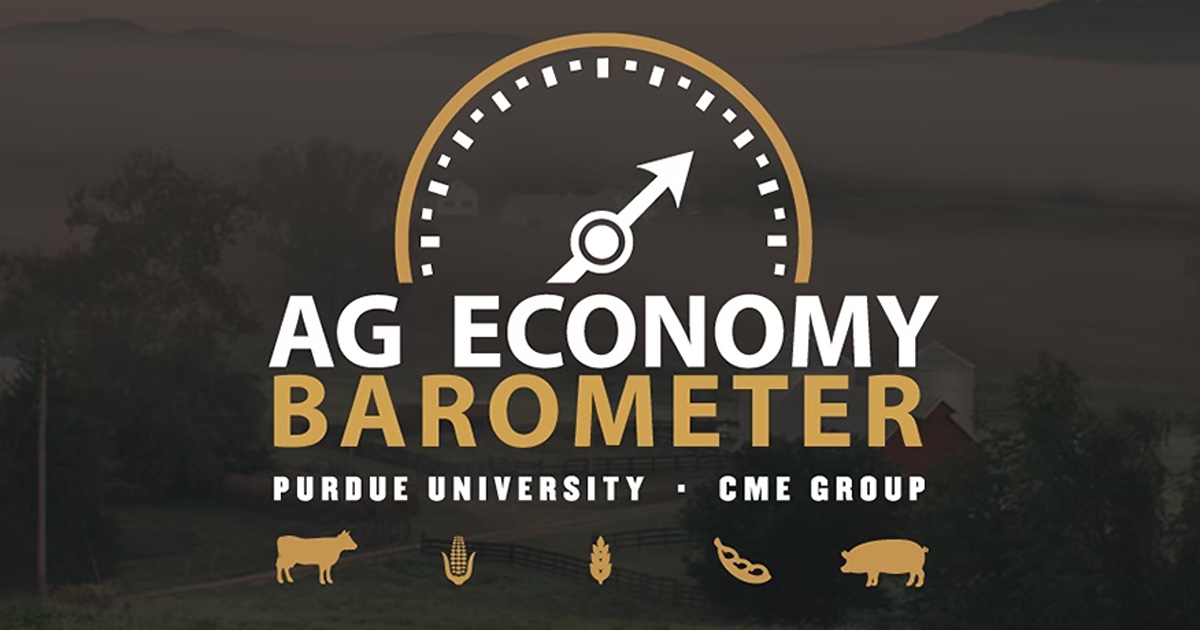Graduate Student Spotlight: Lester Nolasco
Lester Nolasco is a Ph.D. student in the Purdue Animal Sciences Department, and he is under the supervision of Jon Schoonmaker, Ph.D.
Nolasco grew up on a farm with cattle in Honduras, which is where his passion for working with cows took root. From an early age, he envisioned a future centered around livestock.
Nolasco earned his bachelor’s degree in veterinary medicine from the Universidad Nacional de Agricultura. During his undergraduate studies, he discovered a strong interest in laboratory work, which sparked his decision to pursue a career in research.
After completing his undergraduate studies, Nolasco moved to Mexico to pursue a master’s degree in veterinary sciences, with a specialization in milk quality and epidemiology. He then came to the United States, where he sought to expand his knowledge and skills in various fields while mastering the English language.
Nolasco participated in an internship through The Ohio State University, where he gained hands-on experience working on private horse farms in Georgia. During this time, he deepened his understanding of horse husbandry and practical farm management.
Building on his expertise, Nolasco joined the Desert Research and Extension Center at UC Davis, where he conducted research focused on beef cattle nutrition and management. His dedication and passion for animal sciences led him to Purdue University, where he was accepted into the animal sciences program and began pursuing his Ph.D. in January 2023.
Nolasco chose to enroll in the Purdue Animal Sciences’ Ph.D. program because he was interested in Schoonmaker’s research and the department’s facilities.
Nolasco's research centers on enhancing gastrointestinal health in beef feedlot cattle, addressing the challenges posed by high-grain diets. His work explores the complex interactions between intestinal permeability, low-dose antibiotics, the microbiome and the metabolome. By uncovering how these factors influence one another, his goal is to identify alternatives that improve cattle health and reduce the reliance on low-dose antibiotics in their diets.

According to Nolasco, the animal sciences department has helped prepare him for his future by providing him with the opportunity to take part in cutting-edge research.
“Through this work I’m gaining valuable experience in so many research skills that are key for my future as a researcher,” Nolasco said. “Additionally, the collaborative environment at Purdue has helped me to work with research projects in other areas that also give me an overview of what other labs are working on. I have also gotten hands-on experience which gives me expertise to understand real-world challenges, how to approach these challenges and problem-solving abilities.”
Nolasco highlighted the department's strengths, emphasizing its faculty, collaborative environment and focus on practical applications.
Nolasco was awarded a LOUJA Graduate Travel Award in May 2024 for his research on the “effects of antimicrobial feeding on the ruminant gastrointestinal tract microbiome.” However, according to Nolasco, his greatest accomplishment as a graduate student in the animal sciences department has been the results of his research.
“The results from my research bring me fulfillment and the fact that they will impact and help producers not only in the states but also abroad make me feel like I’m doing something useful and excites me to work,” Nolasco said.
Nolasco also shared advice for future graduate students.
“Marion Welsh knows everything, so go to her if you have a problem,” Nolasco said.
He also mentioned the importance of networking and having a social life.
“Networking is key,” Nolasco said. “Don’t be afraid of helping other labs and getting to know different people, and don’t forget your social life.”






